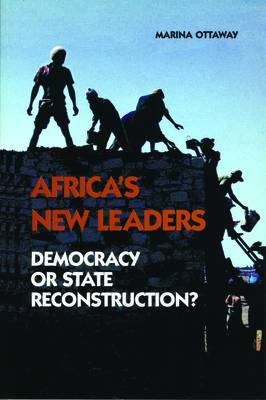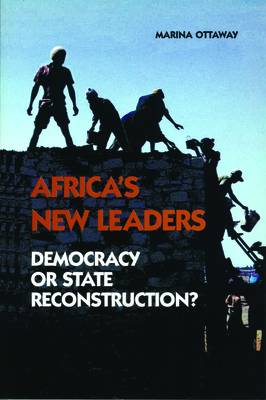
- Retrait gratuit dans votre magasin Club
- 7.000.000 titres dans notre catalogue
- Payer en toute sécurité
- Toujours un magasin près de chez vous
- Retrait gratuit dans votre magasin Club
- 7.000.000 titres dans notre catalogue
- Payer en toute sécurité
- Toujours un magasin près de chez vous
Africa's New Leaders
Democracy or State Reconstruction?: Democracy or State Reconstruction?
Marina OttawayDescription
This book's starting assumption is that democracy is always desirable, but may not always be possible in the short and medium run. The road to democracy thus may not initially be democratic. In this perspective, the author examines the experience of a small number of African countries which--under the guidance of energetic new leaders--have turned the corner away from conflict and economic disintegration and are now pursuing economic and political reform and assertive foreign policies that have made them into important regional players. Uganda, Ethiopia, and Eritrea--countries long synonymous with war and economic chaos--are now among the most dynamic on the continent. Their success is making them into a model attractive to other African governments, particularly in other countries emerging from conflict. Yet these countries' new leaders refuse to carry out the democratic reforms favored by the U.S., arguing that such measures would cause more conflict. Instead, they will move toward political reform in their own way and at their own pace. Can this process eventually lead to democracy or is it bound to restart a vicious circle of authoritarianism and economic decay? And can the U.S. influence the change, while accepting that the process is bound to be long and complex? These questions will confront the U.S. with increasing frequency in coming years. As the countries where democratic transformation was easiest move forward toward consolidation, policy makers will be forced to deal with those countries where democratic change is more complex.
Spécifications
Parties prenantes
- Auteur(s) :
- Editeur:
Contenu
- Nombre de pages :
- 138
- Langue:
- Anglais
Caractéristiques
- EAN:
- 9780870031342
- Date de parution :
- 18-01-22
- Format:
- Livre broché
- Format numérique:
- Trade paperback (VS)
- Dimensions :
- 153 mm x 228 mm
- Poids :
- 226 g







